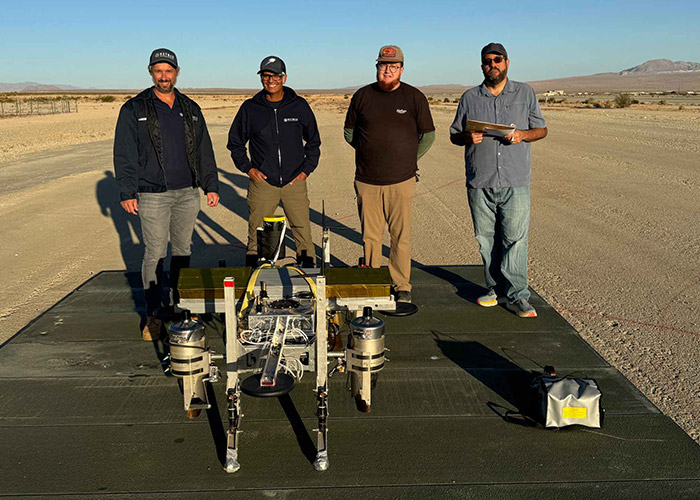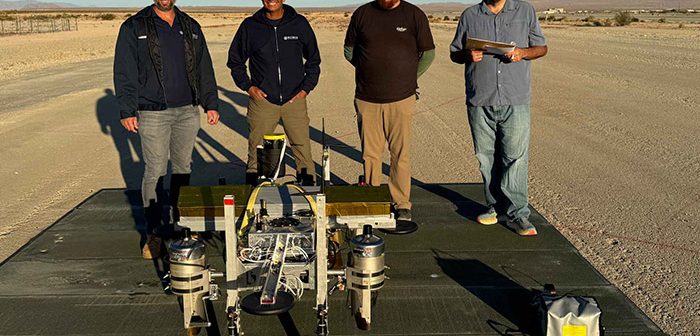
US-based Mayman Aerospace has completed successful flight tests at a military base in the Southern California desert of its RAZOR test bed VTOL aircraft.
Supported by our Other Transaction Authority (OTA) contract with the US Department of Defence, the fully autonomous flight tests were designed to test avionics, thrust vectoring mechanisms, flight control laws, software, and command and control.
“Our recent flight tests were 100% successful and we are confident RAZOR will reach speeds greater than 450 knots,” said Mayman Aerospace Founder and CEO David Mayman. “As a multi-role, dual use technology Razor is already changing the way defense commanders and civilian leaders are thinking about autonomous VTOL applications. We are a software-driven hardware company and our team is achieving performance levels once only dreamed about. We are super excited about the next set of flight tests later this year.”
The RAZOR test bed is the same dimensions and weight as the RAZOR P100 and uses the same propulsion, engine gimballing, thrust vectoring and flight control systems.
The test flights also enabled early verification of operating procedures. This series of tests focused on the transition of the engines moving out of hover mode, which is critical for high-speed winged flight.
The Mayman Aerospace RAZOR VTOL aircraft is designed with multi-role capabilities. Its proprietary control system enables swift, secure and efficient transportation of critical supplies, bolstering military readiness and resilience in challenging and austere environments. RAZOR aircraft can also be configured to extend the range of small air-to-air or air-to-surface missiles such as Brimstone or Hellfire, delivering them over 200 miles. The aircraft can then deploy the missile for final target acquisition, enhancing the reach and precision of the missile systems.
Launched vertically without the need of special launch system or infrastructure, RAZOR can act as an ISR, target designation and launch platform. Due to its extreme speed the RAZOR can quickly intercept drones. RAZOR also provides a cost-effective alternative to expensive cruise missiles. Its swift, agile, AI-guided C2/C3 enables precise payload or kinetic impact delivery. This versatile platform ensures efficient operations at a fraction of traditional costs.
“In these flight tests we flew seven autonomous mission sets and all systems worked perfectly as planned,” say Mayman Chief Engineer Manu Sharma. “The primary objective was to validate recent flight-software and control-law updates, with particular attention to the change from hover mode with the engines canted outwards from the aircraft center, to transition mode with all engines canted in the same direction, which is required to get us into winged flight. It is also a benefit to get additional autonomous flight time on the vehicle, take-off and landing in particular, to increase our confidence in the system as a whole.”
With VTOL capability for deployment in confined areas, projected speeds up to 500 miles per hour, and advanced surveillance technology, the RAZOR UAS provides a platform to acquire superior image quality by carrying large gimbal balls at high altitude. As a self-sufficient platform, RAZOR ensures immediate and reliable intelligence, enhancing battlefield decision-making. This aircraft is essential for modern warfare.
Mayman Aerospace is well advanced in its mission, having designed, built, and flight tested five full-scale prototypes and secured US Dept of Defense contracts. The RAZOR aircraft is fully scalable and the team plans to develop P100, P500 and P1000 variants. Additional test flights are scheduled for later this year, and manufacturing and sales of the P100 is scheduled to begin in 2025.






